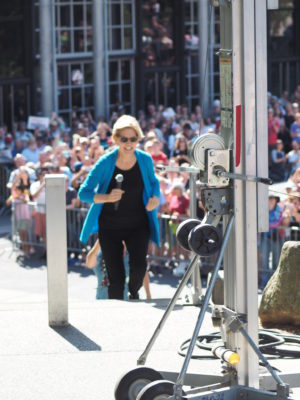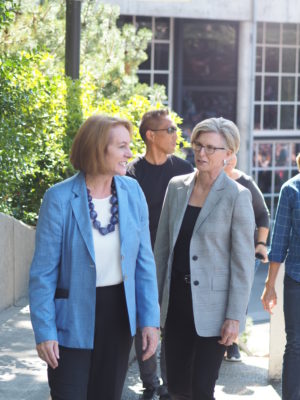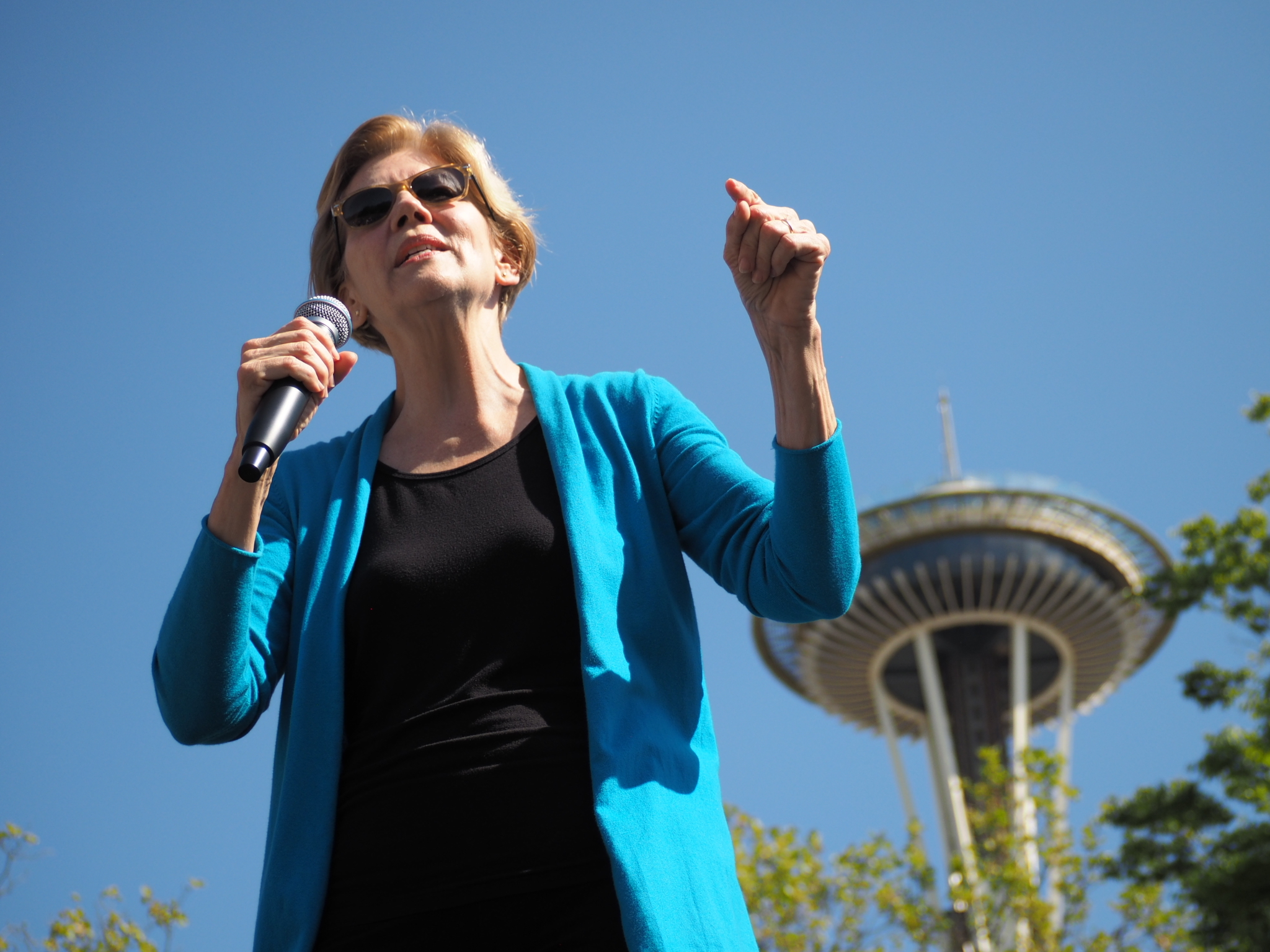If you are a hardy Northwest progressive, it’s hard to top a chance to listen to one of the leading progressive candidates for president of the United States. For free!
Alongside 15,000 others, three of us from the Northwest Progressive Institute attended Elizabeth Warren’s rally at Seattle Center Sunday.
The impressive attendance figure was a new record for the 2020 Warren campaign, and it’s part of a trend of burgeoning crowds turning out to hear from the senior United States Senator from Massachusetts. Only a few days ago, about 12,000 people showed up to a rally in Minnesota to hear Warren’s message.

Introducing Warren was Joe Nguyen (D‑34th District: Seattle), State Senator from the 34th Legislative District representing parts of West Seattle and the surrounding area. Nguyen, eight months into his first term, is a strong progressive who was supported for the Senate by the Washington Conservation Voters, the Regional Council of Carpenters, and Seattle Transit Blog, among other organizations.
After Nguyen’s introduction, Warren sprinted onto the stage, warmly greeting Nguyen and thanking the multitude from across the Pacific NW for showing up.
Warren also praised Washington Governor Jay Inslee for his contribution to the primary conversation. Inslee announced Wednesday that he would end his presidential campaign; the next day, he declared a gubernatorial reelection bid.
Warren touted the Governor’s climate-focused agenda, and later made clear in the press gaggle that she shares Inslee’s view that the Democratic field needs a climate debate — contradicting DNC Chair Tom Perez and his supporters, who voted Saturday against a resolution that would have sanctioned a climate debate.
Warren has not made climate action the single overarching theme of her campaign like Inslee did. But she has emphasized climate justice in her proposals for heavy infrastructure investments, public domain technological innovation, and a climate-focused foreign policy. For Warren, climate justice is more of an integrated concern woven into every plan and every related than a single-issue crusade.

Sitting in the background of the rally in the shade were State Democratic Party Chair Tina Podlowski and Seattle Mayor Jenny Durkan. (Podlodowski, as a state party chair, is neutral in the presidential contest and is not backing anyone.)

Mayor Durkan was thanked by Warren for being a “progressive mayor of a progressive city”. This comment received a notably muted response from the otherwise-boisterous and energetic crowd.
With her style weaving in and out between that of a cheery aunt and somber storyteller, Warren shared with the crowd her life story — beginning with her childhood, and how after her father passed when she was twelve, her mother was able to work hard and support her family on a minimum-wage, a very faint reality for many Americans today.
Before delving into policy specifics (which you can find here) Warren explained how affordable educational opportunities made a huge difference for her: paying $50 a semester for college and $450 a semester for law school opened doors to teaching and government otherwise unattainable.
Then came a discussion of Warren’s plans. Big cheers were heard when Warren vowed to reverse the Citizens Corporations United decision. Warren’s wealth tax plan — a 2% tax on assets over $50 million — was also well-received.

After the rally (billed as a town hall) had concluded, every single attendee who wanted a selfie with Warren was given the opportunity. The line snaked all the way around the lawn south of the International Fountain.
Nationwide, Warren has been polling between 14–20%, which leaves her in either second or third place overall. In Washington, a statewide poll with a sample of six hundred and nineteen likely voters conducted July 22nd — August 1st has Warren at 14%, behind Biden (19%) and Sanders (18%).
For the 2020 nomination cycle, the Washington State Democrats have revised the delegate allocation process. In years past, voters will remembers local precincts hosting caucuses to determine the electorate’s preferred nominee.
Idaho’s Democratic primary will also conclude on this date, just shy of three weeks earlier than the 2016 Washington caucuses. Oregon will hold its presidential primary two months later, in May, like it has in past years.
The Washington State Democratic Party’s switch to a primary for allocation purposes was made possible by legislation supported by NPI that tweaked the Revised Code of Washington to make the existing presidential primary statute respective of the parties’ First Amendment rights.
Under the plan adopted by the party’s governing body, the party will hold legislative district caucuses to select delegates to the state convention and congressional district caucuses about one month after the presidential primary is certified. Because all but one level of the caucuses are being retained for delegate selection and partybuilding purposes in 2020, the plan adopted by the WSDCC has been called a “primary-caucus hybrid” approach.
Among the WSDCC’s aims in adopting a primary-caucus hybrid plan was to encourage more candidates to visit Washington and spend time in-state.
So far, Pete Buttigieg and Joe Biden have both held fundraisers in the state, but Sunday marked the first time a major candidate (polling in the double digits) has held a public event in Washington. (Biden held a closed-door fundraiser.)
Here’s to hoping many more candidates from across the Democratic field will make the journey to Cascadia, engage with activists from across the region, and help voters figure out who they want to cast their ballot for next spring.

